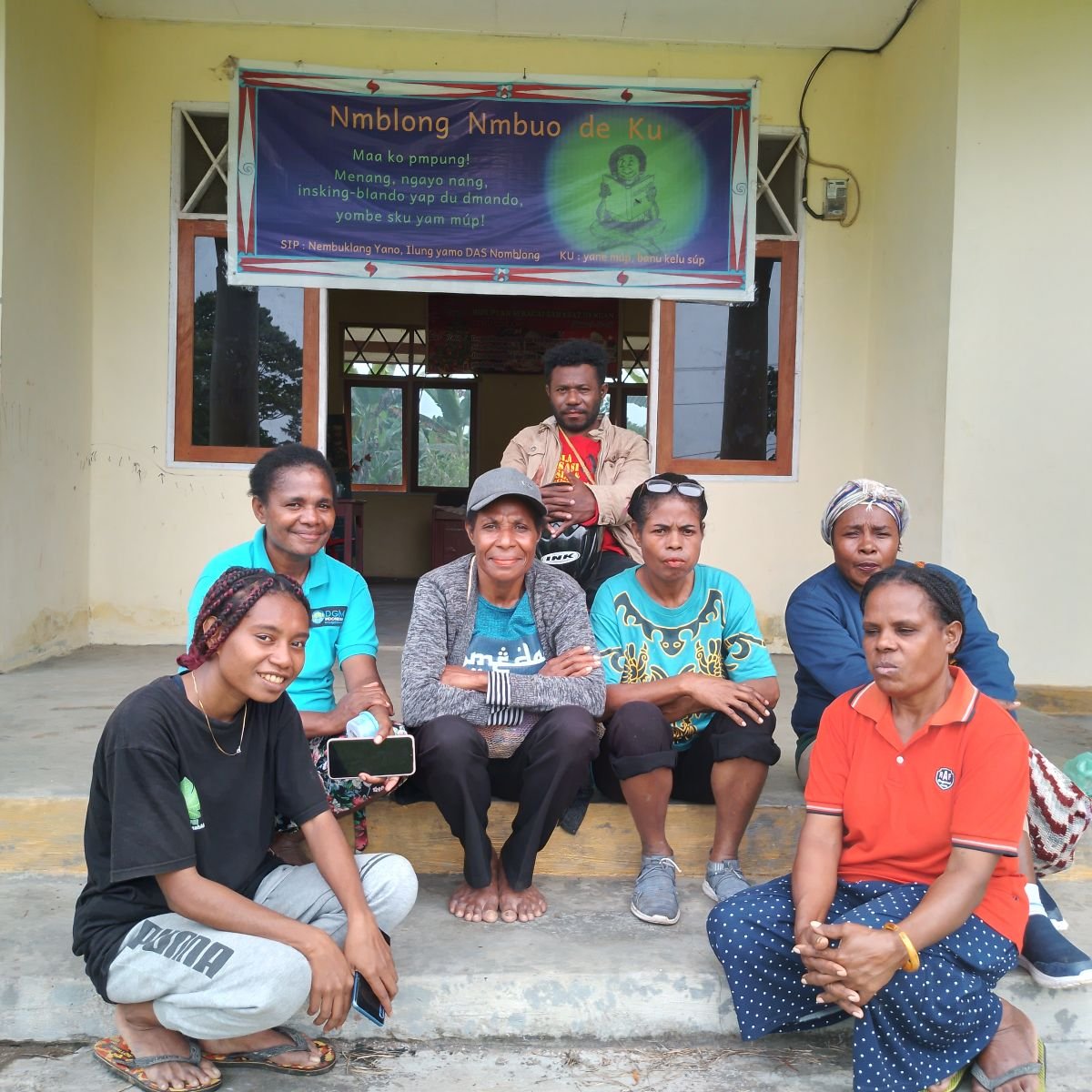The Evolution of Indigenous Land Management: One Woman Activist's story
by Rosita Tecuari, member of the Namblong Indigenous Woman Organizations (ORPA) & Namblong tribal member
My name is Rosita Tecuari. I was born and raised in Grime Valley, the land of the Namblong Tribe. I’d like to tell you my story, share our tribe's land management practices, and some of the challenges we’re currently facing.
Growing up as a child of the forest
When I was a child, my mama often took me to the forest to teach me how to harvest. We collected sago, fruits, herbs, medicinal plants, fish, and firewood. One favorite was Melinjo or Gnemo, a staple plant in South East Asia. We use its fruit for cooking, sold any surplus in exchange for salt, sugar, and other kitchen needs, and used the bark to produce our traditional noken bags.
For protein, we would harvest prawns by creating a pool and draining the water to collect them. If we saw a baby prawn, we automatically released it back into the river. All the Namblong people live, harvest, and hunt in the same way.
Our lives as Indigenous People depends on our forests. Our parents taught us to only collect enough from the forest to meet our daily needs- that the forest serves as the storehouse for our livelihoods and that our role is to protect the forest at all costs.
Rosita Tecuari and other members of the Namblong Indigenous Woman Organization (ORPA) in front of the tribal council office building.
Namblong's land management practices & crucial role played by women
For us to live in and together with the Forest, we use a land management technique that subdivides our land into four areas:
“Ku Depeng” is the virgin forest. The area is prohibited from any human activities such as farming, harvesting, and hunting.
“Depeng Kang Gue” refers to an area previously in use, such as a garden or logging area, that has returned to forest, or Ku Depeng.
“Usu Lebu” pertains to a former garden area that has not yet converted to a reforested area (Depeng Kang Gue). This area can be used for limited harvesting such as sugar cane, bananas, or okra and hibiscus.
“Usu Sip” refers to farms zones.
The knowledge for the customary forest and land management is passed down from our ancestors. Women hold a particularly important role within the tribe. The mothers in each family bear the responsibility to pass on the knowledge and the stories to future generations. Because of our role as stewards of knowledge, it is a critical for women to fully understand customary practices so that when it is the time to rotate the Usu Sip, or farm areas, they know how to identify the new areas without touching the Ku Depeng, or virgin forest area.
Corn and Sago growing in Usu Sip (farm zone).
The tension between the pressure to modernize and preserve Indigenous identity
The pressure to modernize and prioritize economic development has caused many in our tribe to view our customary ways of being as outdated. This distancing from our traditional practices has slowly eroded our culture. We have found that the turning away from our traditional stories has led to many incidents of irresponsible land uses such as the sale of our lands and conversion of our forests for logging and timber.
The tragedy is that prioritizing development over our customary ways has not led to a better life. The logging and palm oil companies in Namblong, which cover over 40 percent of our lands, limit our access to critical resources and cut down our forests. We are forced to go farther and farther into the forests to search for everyday items like vegetables, medicinal plants, firewood, and fibers for making our traditional Noken bags. As our villages grow farther away from the forests, water has also been more difficult to access. Rain patterns have become sparser with climate change and our infrastructure is not able to meet daily water needs.
Vanilla production in the Usu Sip (farm zones)
The need for a balanced, hybrid path forward for development
The Namblong Indigenous Woman Organizations (Organisasi Perempuan Namblong (ORPA) women and I continue to fight for our customary values and traditions. After years of organizing, we have finally gained recognition of our tribe and some of our customary forests. These successes have given us renewed hope to continue the fight for our lands-- so much so that in the last couple of months we formed a Forest Patrol task force that monitors and tracks the deforestation in twenty thousand acres of land adjacent to the PT PNM Palm Oil Concession. Our fight cannot stop at recognition. We must now establish the structure and systems to continue collectively steward our forests.
To be clear, we do not resist development. We simply wish for a development method that is aligned with our cultural values. We believe the best way to do this is through establishing our BUMMA (tribally owned enterprise). Without a collective governance mechanism to respond to the pressures of development, I fear that we will lose our forests and risk being evicted from our lands shortly thereafter.
The loss of Papua’s forests, the third largest in the world, will exacerbate the climate crisis and be devastating for the everyone. It is up to us to revitalize traditional ways of managing the forest… for all of our sakes.





